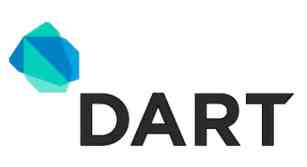| Dart Changes Course - No Longer To Be Native In Chrome |
| Written by Ian Elliot | |||
| Thursday, 26 March 2015 | |||
|
Google has backtracked on its intention to integrate the Dart VM into Chrome and instead the Dart team will concentrate its efforts on compiling Dart to JavaScript. Is this a downgrade of Google's plans for Dart or a new realism?
Introduced by Google in 2011 as a JavaScript replacement language, Dart quickly established itself by being adopted as an ECMA standard in 2013 and by becoming one of the top twenty languages on the TIOBE index in 2014. In order to be an alternative to JavaScript on Chrome, the idea was to put the Dart VM into Chrome, when the time was right. Initially to use Dart you had to either compile it to JavaScript or use it in an environment where a Dart VM was available - either on the server's side or in a special browser like Dartium which is Chromium plus the Dart VM. This situation was always thought of as temporary and the long term goal was to see the Dart VM incorporated into all browsers, with Chrome leading the way. In this way JavaScript would be slowly phased out. The news of a change of a plan for the Dart VM was announced by Dart co-founders Lars Bak and Kasper Lund who presented it as a positive move for Dart developers: In order to do what's best for our users and the web, and not just Google Chrome, we will focus our web efforts on compiling Dart to JavaScript. We have decided not to integrate the Dart VM into Chrome. Our new web strategy puts us on a path to deliver the features our users need to be more productive building web apps with Dart. It also simplifies the testing and deployment scenarios for our developers, because they can focus on a single way to build, test, and deploy their Dart apps for the web. If the Dart VM for Chrome plan had gone ahead it would have represented another split in the browser universe but of course this was the purpose behind doing it. At the moment no website serves Dart up to the browser and as such end users aren't even aware of its existence. If Chrome had a Dart VM then this would change and some website would effectively say - view me in Chrome or not at all. If there were enough such sites then the other browsers would be forced to consider adding a Dart VM. Of course the initial split would be painful and because of this there seems to have been a largely positive reaction to the news that it isn't going to happen. The announcement does give reassurance that this does not mean the end for the Dart and points to the fact that Google Ads is one of Dart's biggest customers. It quotes Scott Silver, Google's VP of Engineering for Ads, saying: “We are committed to building our next-generation web apps with Dart, and a renewed focus on generating optimal JavaScript helps us deliver great apps to everyone with a modern browser. Dart has significantly improved our engineers' productivity and our ability to quickly launch and iterate. We currently have one million lines of Dart code and the number is growing fast.” It also points to other in-house teams that use Dart, such as Google Fiber, Google Express, and Google's internal sales team. However, the fact that the announcement needs to stress these commitments to Dart simply emphasizes the fact that it is a downgrading of Google's hopes for the language. It may be true that Dart isn't dead, but without the Chrome VM it is just another of the many languages that compile to JavaScript and not a replacement for it. In view of the recent news that Google's Angular team has partnered with TypeScript that included an intention to mode TypeScript and JavaScript closer together, does this latest move indicate that Google wants a bigger share of JavaScript's future? At the moment the conclusion has to be that no matter how good a language Dart is, it is no JavaScript killer. |
Azul Announces JVM Inventory 29/04/2025 Azul has announced JVM Inventory, a new feature of Azul Intelligence Cloud aimed at making it easier to migrate away from Oracle Java. |
Django 5.2 Adds Composite Key Support 07/04/2025 Django 5.2 has been released with the addition of support for composite primary keys, and the automatic importing of all models in the shell by default. |
More News
|
Comments
or email your comment to: comments@i-programmer.info



